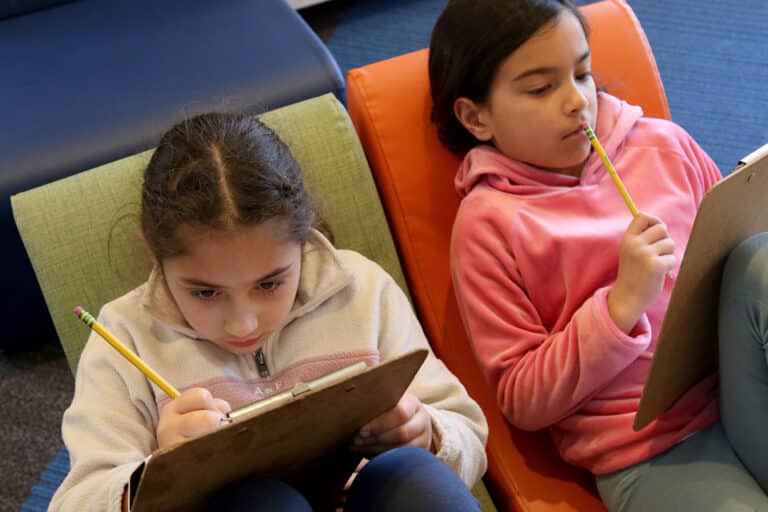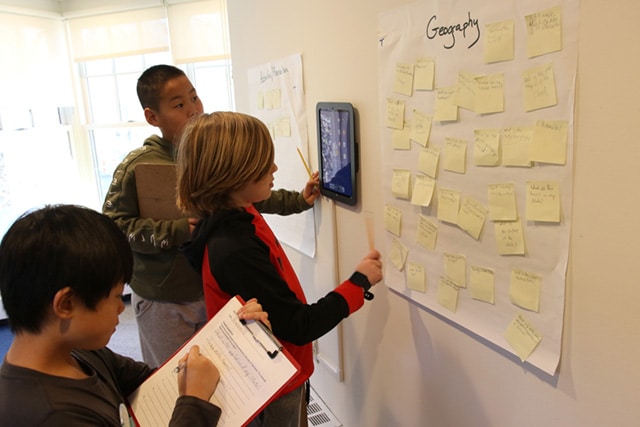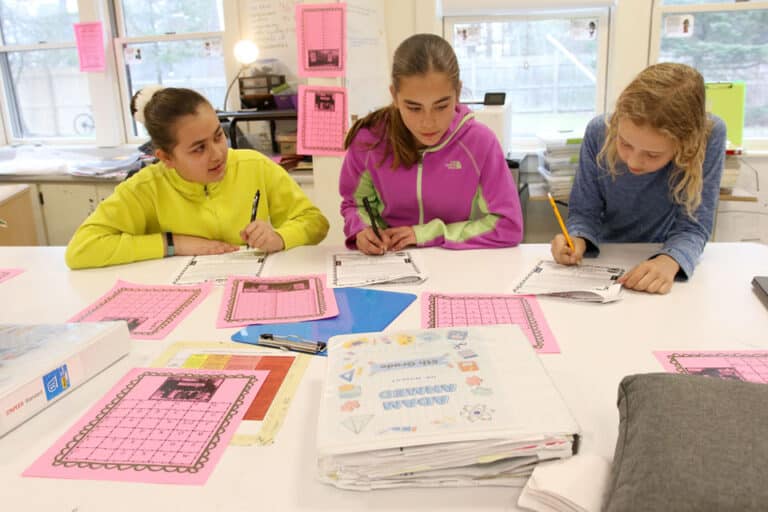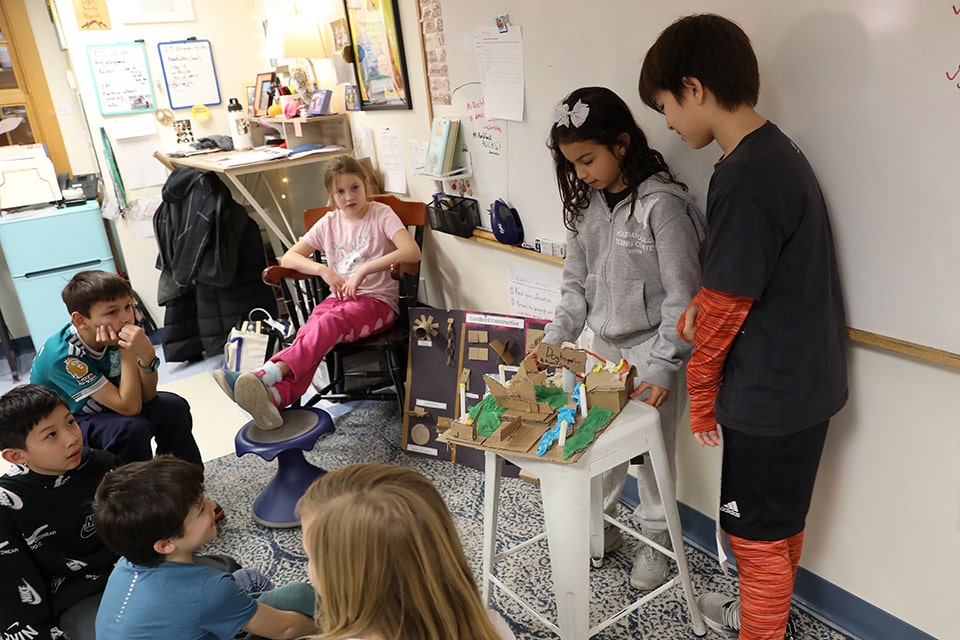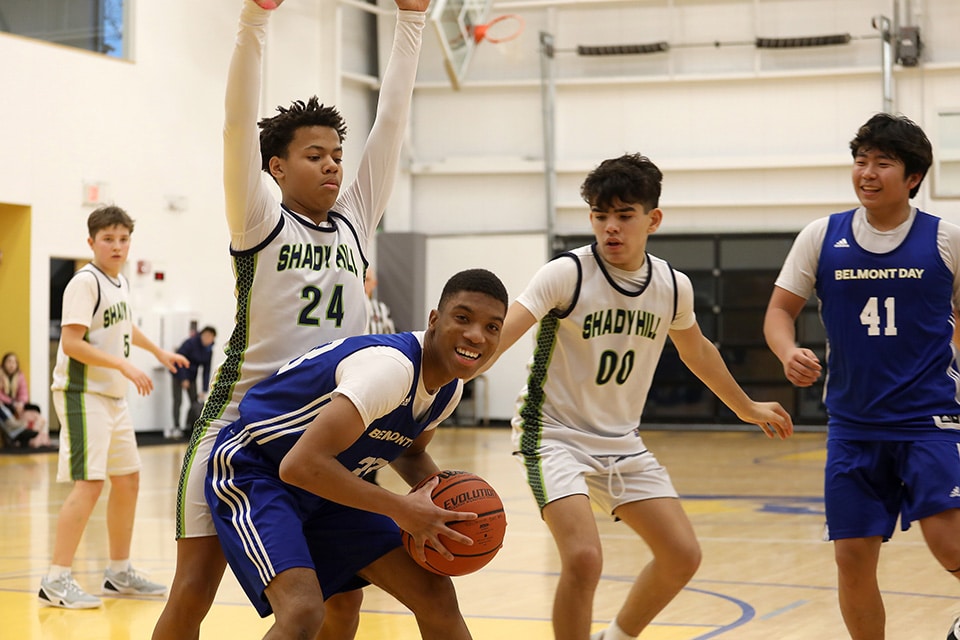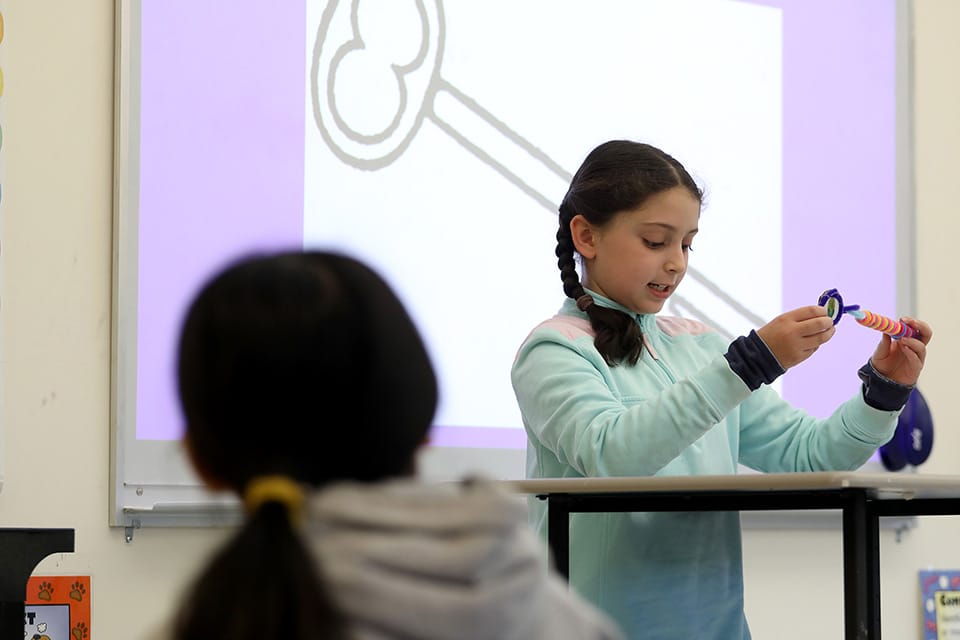Third Graders Start State Research With Great Questions
Third grade state research has officially kicked off! We started the research process this year by using a modified version of the Question Formulation Technique in order to take ownership of our research. In class, students generated questions about the state they chose to research by using their background knowledge to determine what they might want to learn about their state. They then used books and the CultureGrams database for inspiration and asked more questions. Students then worked to determine whether they were asking closed questions, which have a short, defined answer, or open questions, which have more involved answers. They practiced changing questions from closed to open and vice versa. They sorted questions into open and closed groupings. As a class, students then developed a list of categories that their questions fall under and organized the questions by category. Finally, students went “shopping” for questions by recording which questions they want to explore about their state in order to prioritize their research tasks.
In the coming weeks, students will be developing their geospatial skills by examining geographic features of their state and including them on a relief map, applying their science skills by researching their state animal, and flexing their math skills by researching and graphing data about National Parks and also solving and developing multi-operational equations based on their state. There are so many other interdisciplinary connections that we can’t wait to share in the coming weeks.
We’re so excited to share many of the answers to our questions at the State Celebration on May 26 in Coolidge Hall!
– The Third Grade Team
Sixth Grade Takes a Close Look at the Constitution
This week, sixth graders in social studies built context and knowledge and strengthen their vocabulary around content pertaining to these two essential questions: “How has the right to vote expanded since the U.S. Constitution was adopted?” and “How does the U.S. Constitution safeguard the right to equal protection of the law?”
Students learned about topics such as the Thirteenth, Fourteenth, Fifteenth, Nineteenth, and Twenty-Sixth Amendments. We also learned about how people fought back against the constitutionality of literacy tests, grandfather clauses, and poll taxes during and after the Reconstruction Era. Students also participated in another escape room activity about the Nineteenth Amendment and dive deeper into Plessy v. Ferguson (1896) and Brown v. Board (1954).
– Khang Phan, sixth grade social studies teacher
